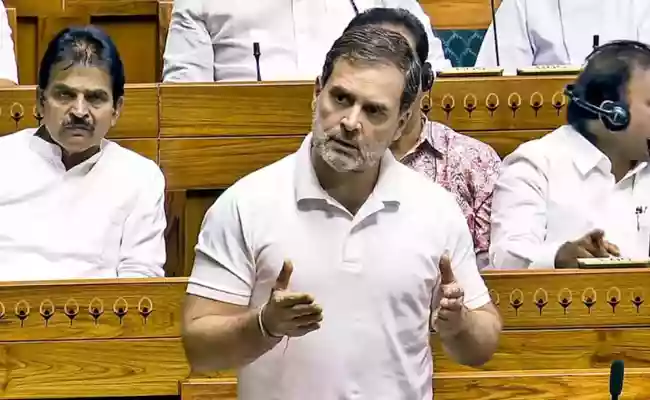.gif)
.gif)

In a strong observation on Friday, the Supreme Court came down heavily on Congress leader Rahul Gandhi for his "irresponsible" remarks on freedom fighter Vinayak Damodar Savarkar during a rally in Maharashtra. While the court stayed criminal proceedings against Gandhi, it cautioned political leaders against making statements that belittle India's freedom fighters.
A bench comprising Justices Dipankar Datta and Manmohan conveyed disapproval over Gandhi’s choice of words and emphasized the need for restraint and respect. “Let’s not mock our freedom fighters,” Justice Datta said, while questioning whether Gandhi knew the historical context of phrases like “your faithful servant” — often used by leaders including Mahatma Gandhi in communications with British authorities.
Senior advocate Abhishek Manu Singhvi, representing Gandhi, argued that the charges of promoting enmity and public mischief were not legally sustainable. However, the bench responded with a history lesson. “Even Mahatma Gandhi and Calcutta High Court judges used such terms. Does that mean they were servants of the British?” Justice Datta asked. He also pointed out that even Gandhi's grandmother, former Prime Minister Indira Gandhi, had once praised Savarkar in a letter.
Taking the matter seriously, the court warned against further irresponsible statements. “Any further comment on freedom fighters by your client will be taken up suo motu,” the bench cautioned. “This is not how we treat those who gave us our freedom.”
While the court granted Gandhi relief by staying the Allahabad High Court’s refusal to quash a lower court’s summons, it made clear its disapproval of his public remarks. The Supreme Court issued notices to the Uttar Pradesh government and complainant advocate Nripendra Pandey in this matter.
The case originated from a complaint lodged by Pandey, alleging that Gandhi’s comments during his Bharat Jodo Yatra rally in Akola, Maharashtra, on November 17, 2022, were part of a “well-planned conspiracy” to defame Savarkar. The Congress leader had challenged the trial court summons and subsequent High Court decision that advised him to approach the sessions court instead.
Despite Singhvi stating that Gandhi did not intend to create division or disrespect, the Supreme Court insisted that political leaders must be more responsible and better informed about historical figures. “Don’t do this,” the bench concluded, reflecting the judiciary’s growing concern over public discourse on sensitive historical matters.